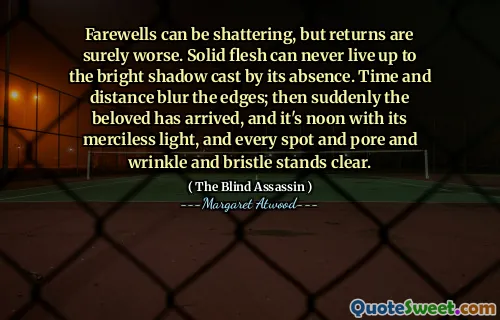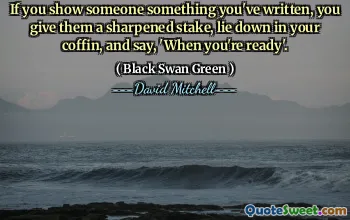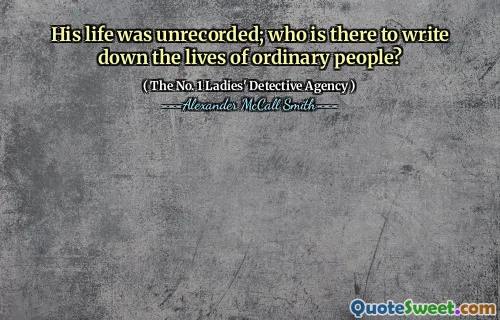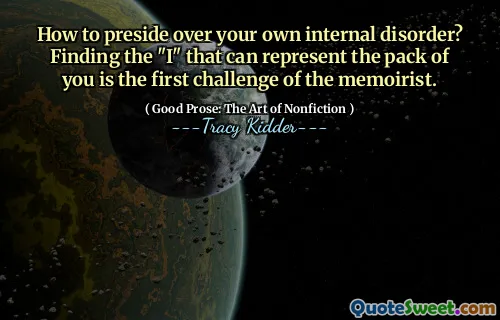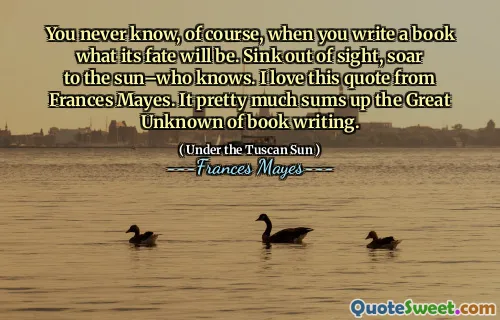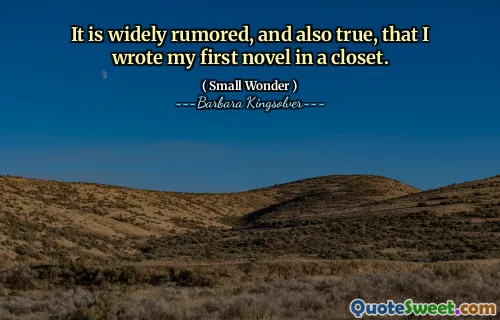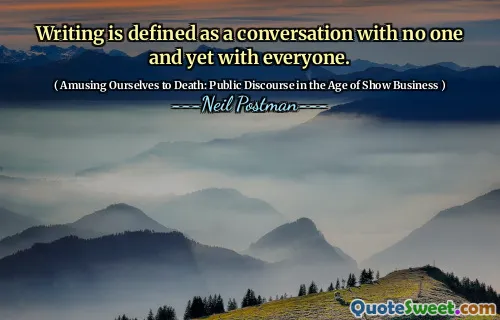The only way you can write the truth is to assume that what you set down will never be read. Not by any other person, and not even by yourself at some later date. Otherwise you begin excusing yourself. You must see the writing as emerging like a long scroll of ink from the index finger of your right hand; you must see your left hand erasing it.
In "The Blind Assassin," Margaret Atwood presents a thought-provoking perspective on the act of writing. The quote emphasizes that to convey the truth authentically, a writer should create as if their words will never be seen by anyone, including themselves in the future. This mindset prevents one from justifying or censoring their thoughts, allowing for unfiltered expression. Without this freedom, writing can become tainted by self-doubt or the desire to please an audience.
Atwood utilizes the imagery of a scroll of ink flowing from the right hand and being erased by the left to illustrate the delicate balance between creation and self-editing. This metaphor suggests that writing is a dynamic process where the instinct to record genuine feelings can be countered by the hesitation to expose one's inner truths. By encouraging writers to fully embrace this tension, Atwood underscores the importance of raw honesty in literature, setting the stage for profound exploration and connection with readers.
